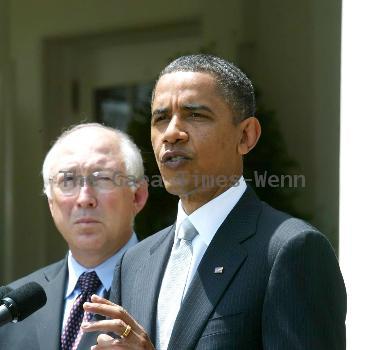China: Yuan to be kept ‘basically stable,’ pressure for rise easing due to Europe debt woes
By APThursday, July 8, 2010
China: Yuan to be kept ‘basically stable’
BEIJING — China will keep its currency at a “basically stable and reasonable” level and financial pressure for the yuan to rise is easing due to Europe’s debt woes, the country’s foreign exchange regulator said Thursday.
Washington and other trading partners complain China’s exchange rate controls keep the yuan undervalued, giving its exporters an unfair advantage. Beijing announced in June it would allow more flexibility but ruled out any big changes.
Market pressure for a stronger yuan is easing because investors are buying more dollars as a hedge against the European debt crisis, the State Administration of Foreign Exchange said in a statement. It said the inflow of currency has eased since May.
“We will dynamically manage and adjust the floating of the renminbi’s exchange rate and keep it at a basically stable and reasonable level,” the agency said, referring to the yuan by its other official name.
The yuan has gained about 0.8 percent against the U.S. dollar since Beijing’s June announcement. It has risen rapidly against the euro as Europe wrestles with its debt crisis, gaining 4.5 percent since the start of June and 14.2 percent so far this year.
Thursday’s comments came in the fourth of a series of statements by SAFE on its handling of China’s foreign exchange. It announced no policy changes.
The Chinese government has rejected complaints the yuan is undervalued and says it is at an appropriate level. It says any changes in policy will be gradual.
The currency regulator also said China’s trade surplus will stay “relatively big,” but its growth rate will slow. The government is due to release its trade data Saturday for June and the first half of the year.
In Washington, the Obama administration had no comment on the new statement which continued a string of mixed signals out of China since Beijing’s announcement on June 19 that it would allow for a more flexible exchange rate.
The Treasury Department has yet to issue its twice-a-year report making a determination on whether China or any other country is unfairly manipulating its currency to gain unfair trade advantages.
The latest report had been scheduled for release in mid-April. But Treasury Secretary Timothy Geithner announced it would be delayed until after the June 26-27 meetings of the leaders of the Group of 20 major industrial countries in Toronto. Geithner’s action was widely seen as an effort to give China more time to resume allowing its currency to rise in value against the dollar without seeming to bow to outside pressure.
President Barack Obama met with Chinese President Hu Jintao in Toronto. Obama later told reporters that he expects China’s currency will rise significantly in value as market forces come to bear. But Obama said the “proof of the pudding is going to be in the eating” on China’s new pledge of a more flexible currency.
The United States believes that a stronger yuan against the dollar will boost U.S. exports to China by making U.S. products less expensive in that market.
Treasury said Thursday that no new date has been set for the release of the currency report.
Sen. Charles Schumer, who is pushing legislation to impose stiff penalties on Chinese imports if China does not revalue its currency, plans to push his measure to a vote at the first available opportunity once Congress returns from its July Fourth recess, Schumer spokesman Brian Fallon said Thursday.
Associated Press researcher Bonnie Cao and Business Writer Martin Crutsinger contributed to this report.
State Administration of Foreign Exchange (in Chinese): www.safe.gov.cn
Tags: Asia, Barack Obama, Beijing, Canada, China, East Asia, Europe, Greater China, Hu Jintao, International Trade, North America, Ontario, Toronto, United States

